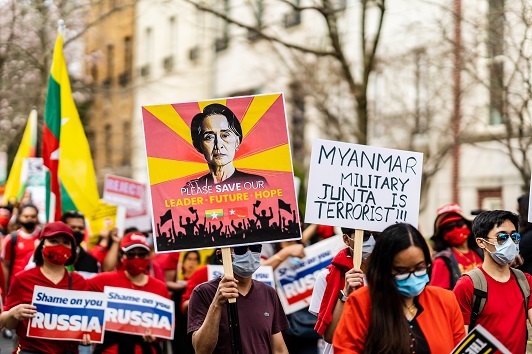 The US government has multiple regulations in place to prevent abuses in the supply chain.
The US government has multiple regulations in place to prevent abuses in the supply chain.
In the pages of this magazine, many jewelry industry authorities have opined about what should be done to solve the problem of human rights abuses in the jewelry supply chain. Of course, the US government has been focused on this issue for a long time, both generally for US businesses and, in some cases, specifically for the jewelry industry. This guidance comes from a myriad of US federal agencies, each regulating a different link of the jewelry supply chain.
Understanding and complying with these laws and regulations can be challenging for any jewelry business; some of the largest businesses in the sector have entire departments devoted to ensuring compliance. These laws and regulations add up to a general business responsibility to consider the human costs of a company’s supply chain.
Anti-money laundering
The fundamental building block of responsible sourcing in the jewelry industry is anti-money laundering (AML) regulations. These regulations, which come from the Bank Secrecy Act (1970) and the USA PATRIOT Act (2001), seek to prevent the use of the US banking system for money laundering or terrorist financing. The regulations require that dealers in precious metals, precious gems, and jewelry made from those materials set up an AML program in their businesses.
There are five parts to this process: appointing a compliance officer; conducting a risk assessment to identify where a business could be used for money laundering or terrorist financing; writing an AML program and policy; training business employees to recognize signs of money laundering; and periodically testing the program to ensure it is working
as designed.
Having a compliant AML program also requires checking suppliers and customers against certain lists the government maintains of bad actors and known criminals across the world, with whom US businesses are forbidden to transact. The Office of Foreign Assets Control (OFAC) maintains the Specially Designated Nationals (SDN) list, which is how sanctions get placed on people and entities, blocking them from using the US banking system and doing business with US companies.
This mechanism is how the US government prevents businesses from transacting with known human rights abusers — for example, the military leaders who took over the government of Myanmar (Burma) in the violent coup of February 2021 and have murdered over 1,400 Burmese citizens in the ensuing protests. The state-owned gemstone mining and marketing agencies they now control are all on the SDN list.
Mineral sources and forced labor
Another measure is Section 307 of the Tariff Act of 1930, which prohibits importing goods produced wholly or in part in a foreign country that uses forced labor. US Customs and Border Protection (CBP) enforces this law by investigating and acting on allegations of forced labor in supply chains. CBP will seize specific goods at a port, or will issue withhold release orders designating a particular foreign country known to be using forced labor. These orders mean products imported from a specific region will be held at a customs port until the importer can submit evidence that the goods were not produced using forced labor. For those looking to learn more about the useof forced labor in specific countries, the US Department of Labor has a downloadable educational app called Sweat & Toil: Child Labor, Forced Labor, and Human Trafficking Around the World.
Yet another important law to know is the Foreign Corrupt Practices Act, which makes it unlawful to offer, pay, or promise to pay money or anything of value to any foreign official for the purpose of obtaining or retaining business. This law is enforced by both the Securities and Exchange Commission (SEC) and the Department of Justice. The SEC, of course, also enforces the conflict-minerals provisions of the Dodd-Frank Act, requiring that any publicly traded company report its use of gold, tin, tantalum or tungsten originating in the Democratic Republic of Congo (DRC) or any of the nine surrounding countries. This rule exists because of concerns that the exploitation and trade of conflict minerals by armed groups is helping to finance conflict in the DRC region and is contributing to an emergency humanitarian crisis.
While these laws are complicated, and this article is not comprehensive of all laws intersecting with human rights, it’s important to know that the US government is focused on this issue in global supply chains. Starting with a robust AML program, businesses can build out their compliance programs to ensure that they are not contributing to or financing human rights abuses around the world.
Sara E. Yood is deputy general counsel of the Jewelers Vigilance Committee (JVC).
jvclegal.org
Image: Burmese demonstrators gathered around the Myanmar embassy in Washington, DC, in March 2021 to protest the military coup of the Asian country. (bgrocker/Shutterstock)Article from the Rapaport Magazine - Special Report Blood Diamonds. To subscribe click here.